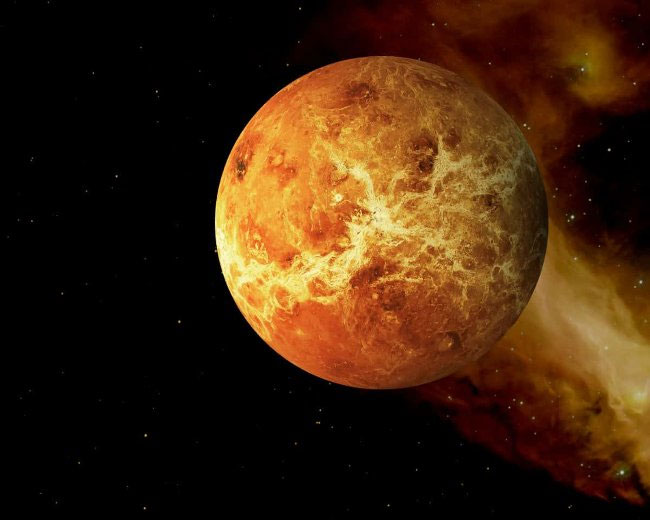NASA concussion statement about Venus
In the past, it could have been that Venus had a stable climate, having had water for billions of years before the planet's surface became "burning".
Recently, NASA's Goddard Space Science Institute (GISS) created a series of five simulations to see if Venus could have a stable climate and water.
Three of the five scenarios assume that Venus' topography has an average depth of 310 meters, an average shallow layer of water 10 meters and a small amount of water locked in the soil.

Venus could have been a temperate planet.
The researchers also adjusted the 3D general circulation model to simulate environmental conditions at 4.2 billion years ago, 715 million years ago and today.
From these scenarios, they discovered that Venus could maintain a stable temperature for a maximum of about 50 degrees Celsius and a minimum of about 20 degrees Celsius for about three billion years. Venus could have been a temperate planet, storing liquid water for billions of years before a dramatic transformation.
The mild climate could even be maintained on Venus today about 700-750 million years ago. Dr Michael Way from NASA GISS said: "Our hypothesis is that Venus could have a stable climate for billions of years."
So what caused the explosion that led to the dramatic transformation of Venus? Probably a large amount of bubbling magma from below the planet's surface, releasing carbon dioxide from molten rock into the atmosphere.
Magma freezes before reaching the surface and this creates a barrier for gas exchange. The presence of large amounts of carbon dioxide has caused the greenhouse effect, leading to the average temperature of Venus rising to 462 degrees today.
"Our models show the true possibility that Venus could be habitable and radically different from the Venus we see today. This shows that, planets can become hot and lifeless like Venus even though it may contain liquid water and a temperate climate. "
- "Ocean planet" exists next to Earth!
- The ocean could have existed on Venus 700 million years ago
- NASA wants to bring people to Venus
- Overview of Venus
- NASA simulates Venus's hellish environment
- Venus can stay?
- Venus Experss are about to plunge into the Venusian atmosphere
- Venus is about to be a
- NASA intends to build a city floating on Venus
- After 8 years of Venus exploration, Venus Express has run out of fuel
- 10 most interesting things about Venus
- Plan to conquer human Venus
- The ocean may exist on Venus on Earth about 700 million years ago
- Video: Unusual midnight in hell Venus
 Van Allen's belt and evidence that the Apollo 11 mission to the Moon was myth
Van Allen's belt and evidence that the Apollo 11 mission to the Moon was myth The levels of civilization in the universe (Kardashev scale)
The levels of civilization in the universe (Kardashev scale) Today Mars, the sun and the Earth are aligned
Today Mars, the sun and the Earth are aligned The Amazon owner announced a secret plan to build a space base for thousands of people
The Amazon owner announced a secret plan to build a space base for thousands of people